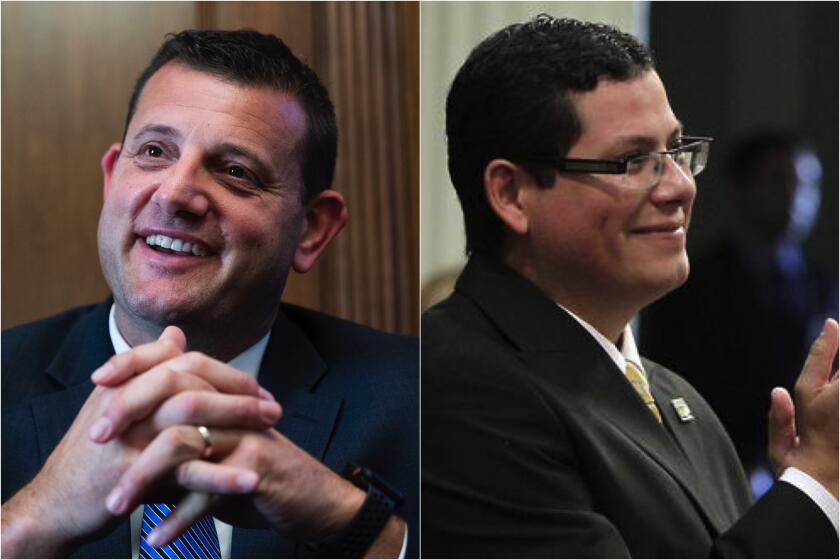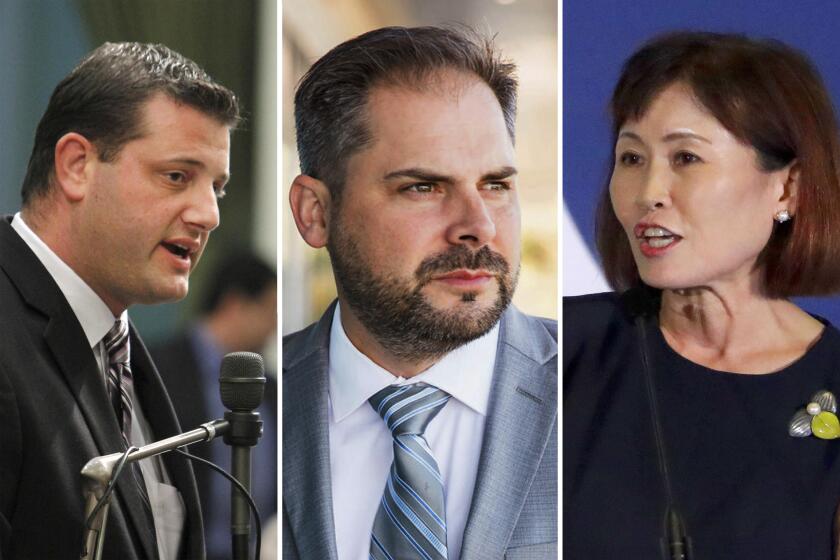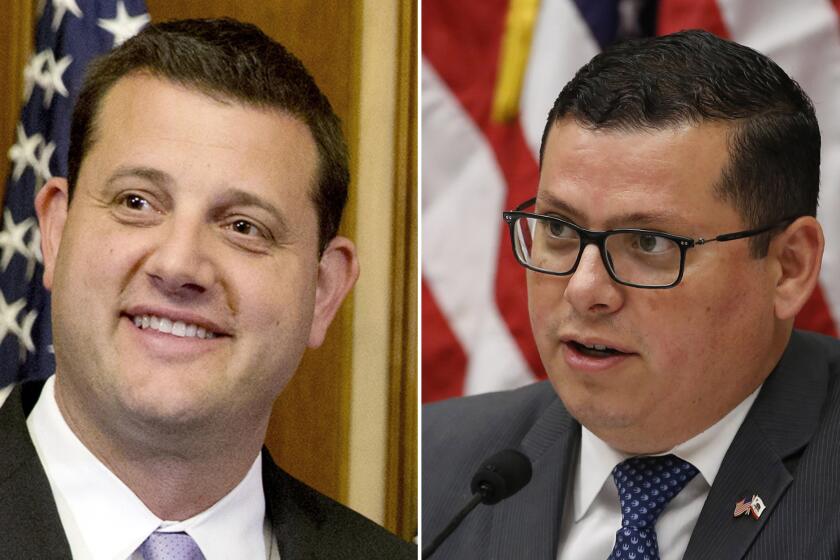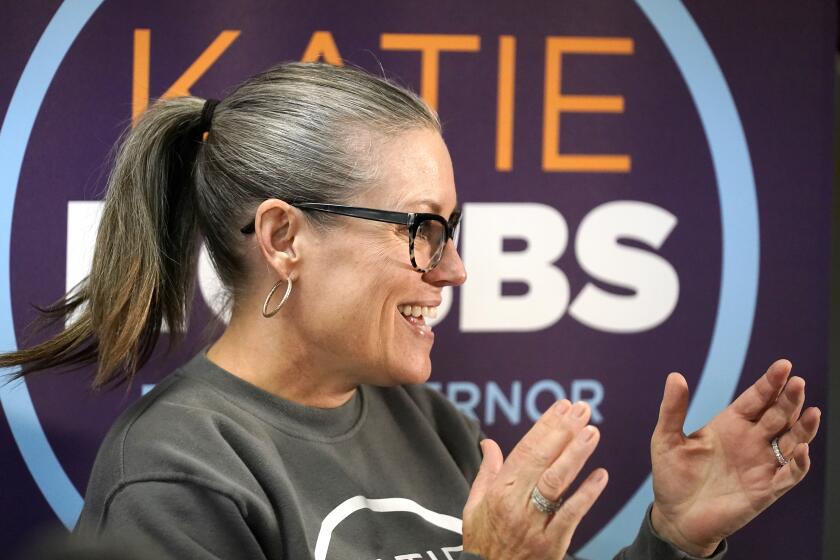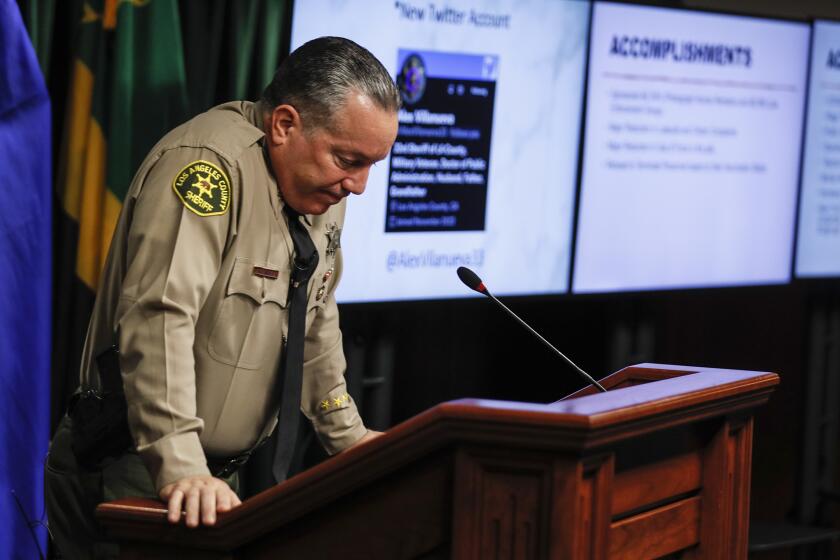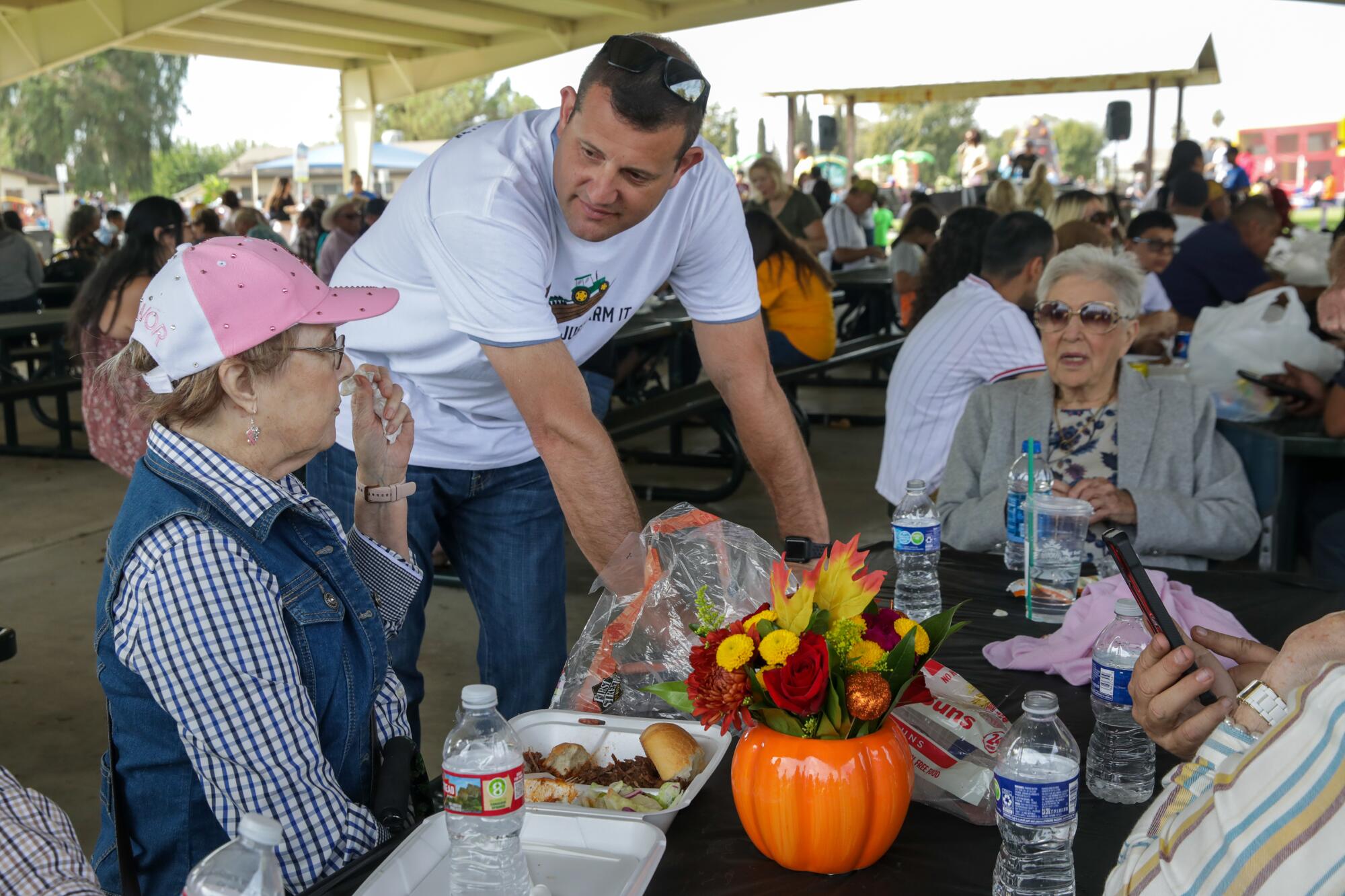
- Share via
BAKERSFIELD — As a teenager, David Valadao had a long list of chores to do before school every day. He’d jump on his tractor, buck hay and feed the family’s dairy cows on their Hanford farm. After school, it was more of the same.
When Rudy Salas was a child, he woke before dawn to join his father in the Central Valley fields. He worked piecemeal, boxing up grapes and fixing machinery. When he injured his fingers doing repairs, his father would tell him, “put some duct tape on it and tell me about it later.”
Valadao and Salas represent, at least symbolically, two of the largest forces fueling the Central Valley — the farmers who drive the area’s agricultural industry and the workers who harvest the food that feeds the nation.
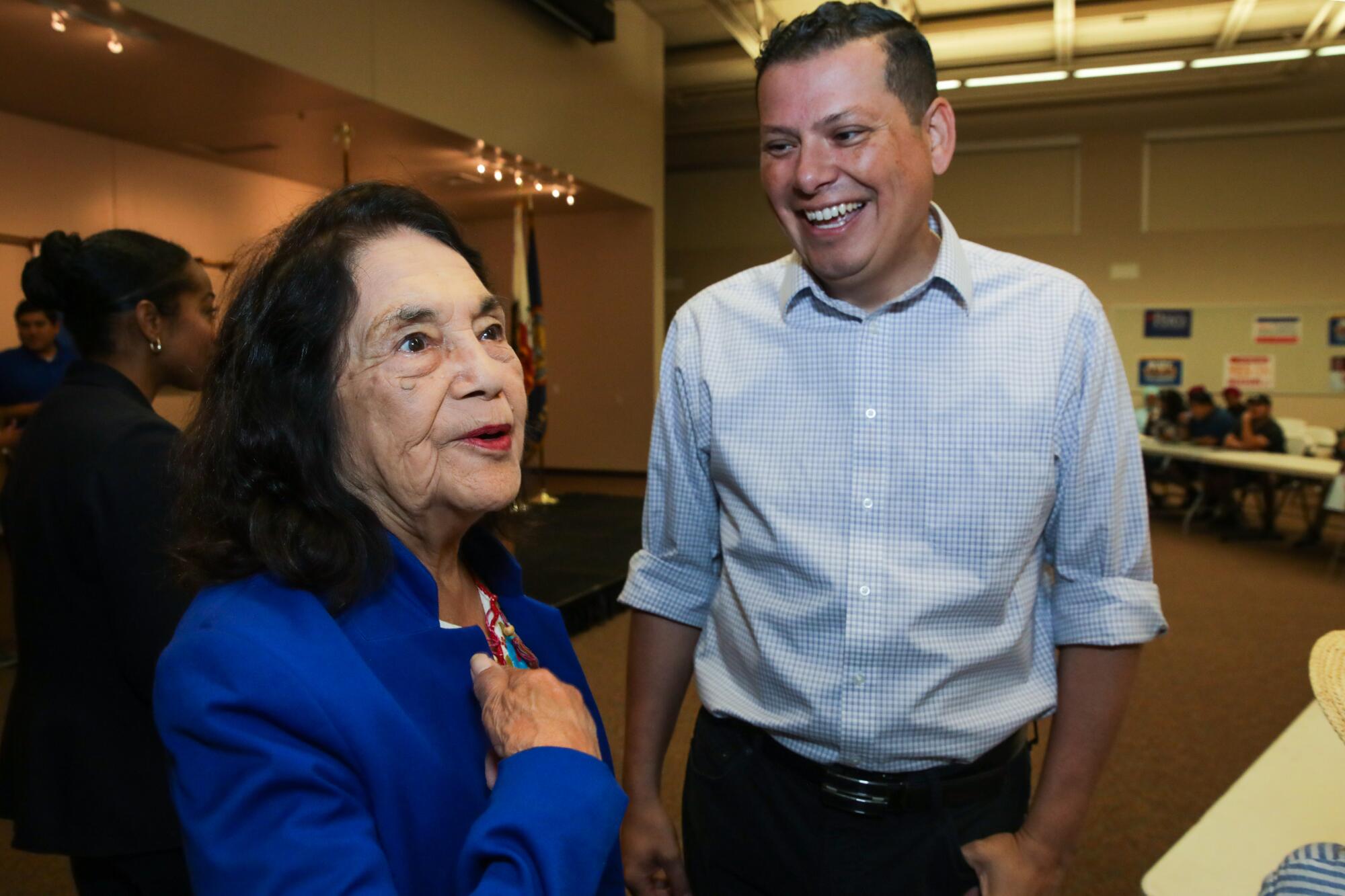
The men, both 45, are leaning into their homegrown roots and experiences as they try to gather votes from farmers and field workers in one of the closest congressional races in the nation. Incumbent Rep. Valadao (R-Hanford) and Salas (D-Bakersfield), who represents much of the area in the state Assembly, are battling in the midterm election for a seat in the 22nd Congressional District.

In a deeply divided nation, the one thing unifying Americans is a shared sense of unease. Vast majorities feel the country is heading in the wrong direction, but fewer agree on why that is -- and which political party is to blame. This occasional series, America Unsettled, will examine the complicated reasons behind voters’ decisions in this momentous and unpredictable midterm election.
It’s a region shaped by migration, class clashes and labor struggles. That a farmworker’s son is challenging a farmer for a seat in Congress represents significant change in the valley, said Oliver Rosales, a history professor at Bakersfield College.
If Salas flips the seat, he would be the first Latino elected to Congress from the Central Valley, a region where Latinos are the majority in many counties. And experts say that constituency could decide the race.
“Salas represents the hopes of a growing demographic within the region,” said Rosales, who added that his election would be a “symbolic victory.”
When Flor Alvarado, 29, heard that the son of farmworkers was running for Congress, she decided to help.
“You connect with a person who knows what it’s like to work in the fields, what it’s like to wake up early and make sacrifices,” said Alvarado, who started farm work when she was 14.
Alvarado spoke on a crisp Sunday morning in Bakersfield as volunteers for the Dolores Huerta Action Fund gathered at a park before knocking on doors for Salas.
Cecilia Lopez, a 38-year-old farmworker and mother of three, said she supports Salas because of his work bringing investments to valley institutions such as her children’s schools and Bakersfield College, where she’s taken English and child development classes. He’s approachable and energetic when it comes to helping the working class, she said.
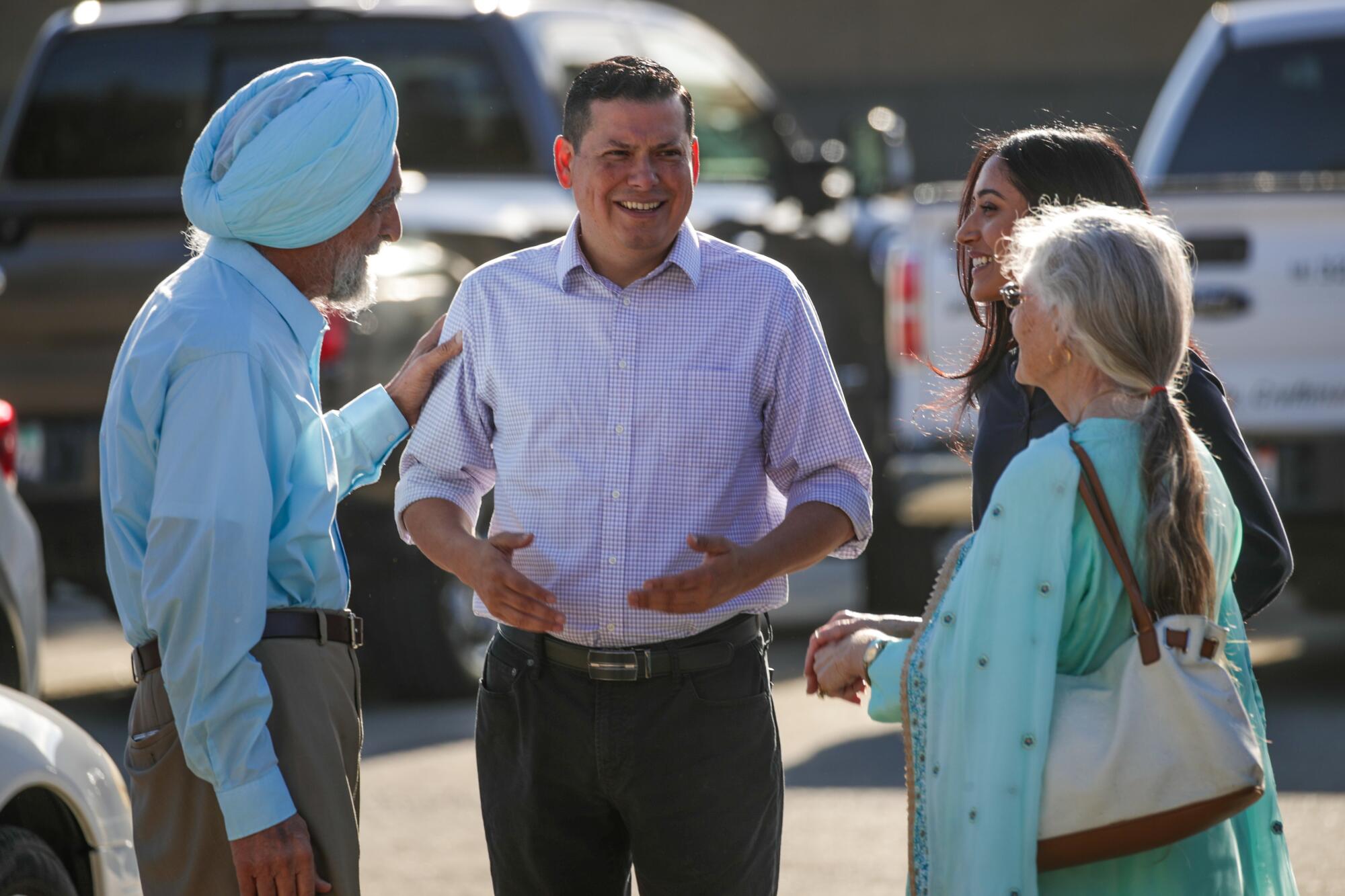
“He’s not waiting for people to work for him,” she said. “He comes to the community and does it himself. I feel confident he’ll always be working for Latinos.”
Valadao, she said, doesn’t know what farmworkers endure. “He’s a person who has benefited from the labors of his parents.”
The congressman says he has been reaching out to farmworkers as well as farmers.
“Over the last month, I’ve probably talked to 800 farmworkers,” Valadao said. “I’ll do stops in [farms] and talk to about 40 to 50 at a time. They’ll call a break and bring them in and I’ll talk to them and [answer] a lot of direct questions.”
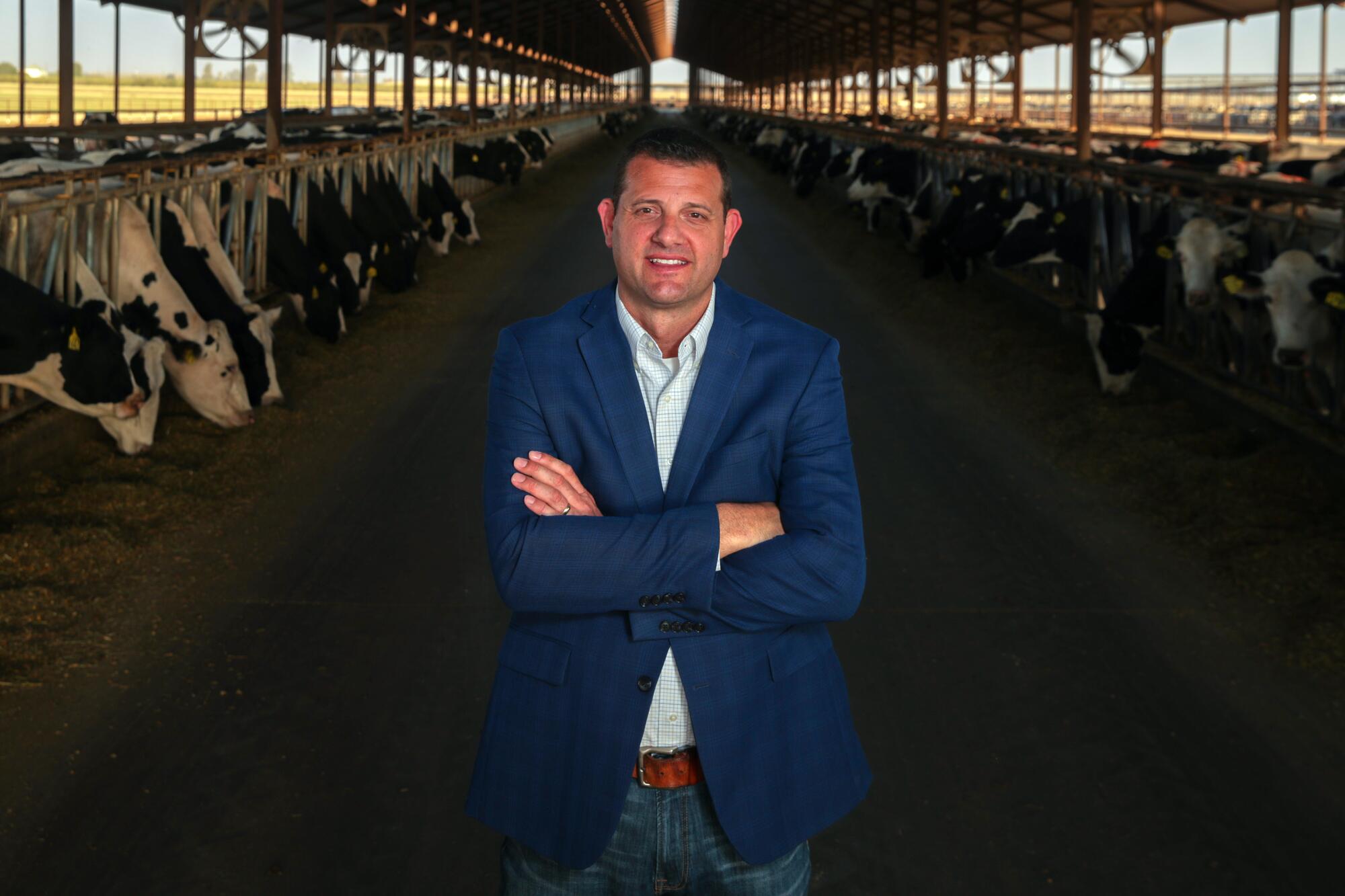
2022 California midterm election: Congressional candidates David Valadao and Rudy Salas on abortion, inflation, homelessness, Central Valley water.
Although many farmworkers are in the country without legal status and cannot vote, they are important constituents in the valley and often come from mixed-status homes, interacting with and influencing the Latino electorate.
Business owner Alexis Garay, who said her father was an immigrant who got his start in the fields, says she sees Valadao as a champion of “the working class and people who are struggling the most right now.”
“I’ve been fortunate in our business, but our pockets are getting tighter and tighter,” said Garay, 31, who works on campaign issues for Bakersfield Republican Women, Federated.
Garay, who is running for the local school board, noted that the oil company where she used to work had to shut down rigs because of permitting restrictions, an issue that Valadao said he plans to tackle if reelected.
“When they stopped drilling, we had to let people go. It was really hard to see given that this is such a huge part of Kern County,” she said, adding that she believe politicians are moving too rapidly toward clean energy goals. “Valadao understands that and is willing to work across the aisle to make things happen on a gradual scale.”
In the two months since the Supreme Court overturned Roe vs. Wade, Republican candidates have been noticeably quiet on the abortion issue.
Cathy Abernathy, a Kern County GOP leader, said Valadao’s appeal is that he hones in on the daily struggles of valley residents. “We produce things. We pull oil out of the ground and turn it into gas. This district is mostly hardworking people and they don’t spend their time caught up in these national issues” such as abortion, she said.
The candidates strongly disagree on abortion rights. Salas voted to put a state constitutional amendment to protect abortion rights on the Nov. 8 ballot. Valadao is co-sponsor of a bill that, as introduced in the House, would ban abortion nationwide with no exceptions. The congressman has said he does support some exceptions, a departure from the Life at Conception Act.
In the district, which has long tilted blue, Democrats have more than a 17-percentage-point voter registration advantage and the voting age population is 59% Latino. But the area has sent mostly GOP representatives to Washington for years.
Latino turnout has traditionally been low here, which many blame on a lack of outreach by campaigns. The Central Valley also has an independent, conservative streak that often favors Republicans. Plenty of Latinos, experts say, count themselves among the area’s “Valleycrats” — a portmanteau highlighting that Valley Democrats often aren’t as dogmatic as party members elsewhere in the state.
“Because this is not a presidential election year, it’s going to be tough to get Latinos and so-called Valleycrats out to vote,” said Mark Martinez, chair of the political science department at Cal State Bakersfield.
Martinez said the race hinges on reaction to the Supreme Court’s decision to overturn Roe vs. Wade and how much effort United Farm Workers puts in for Salas. “If Rudy wins, it’s going to be women and it’s going to be the UFW.”
Most farmworkers are not represented by a union, but the UFW plays an important role, through funds for canvassing and phone banking, experts said. The union backed Salas after he supported an Assembly bill letting farmworkers vote from home in union elections. He also voted to raise the minimum wage and mandate overtime pay for farmworkers.
“He really understands on a personal deep level what farmworkers in the Central Valley experience,” said Teresa Romero, president of the UFW. “That is the perspective we’re missing in the halls of Congress.”
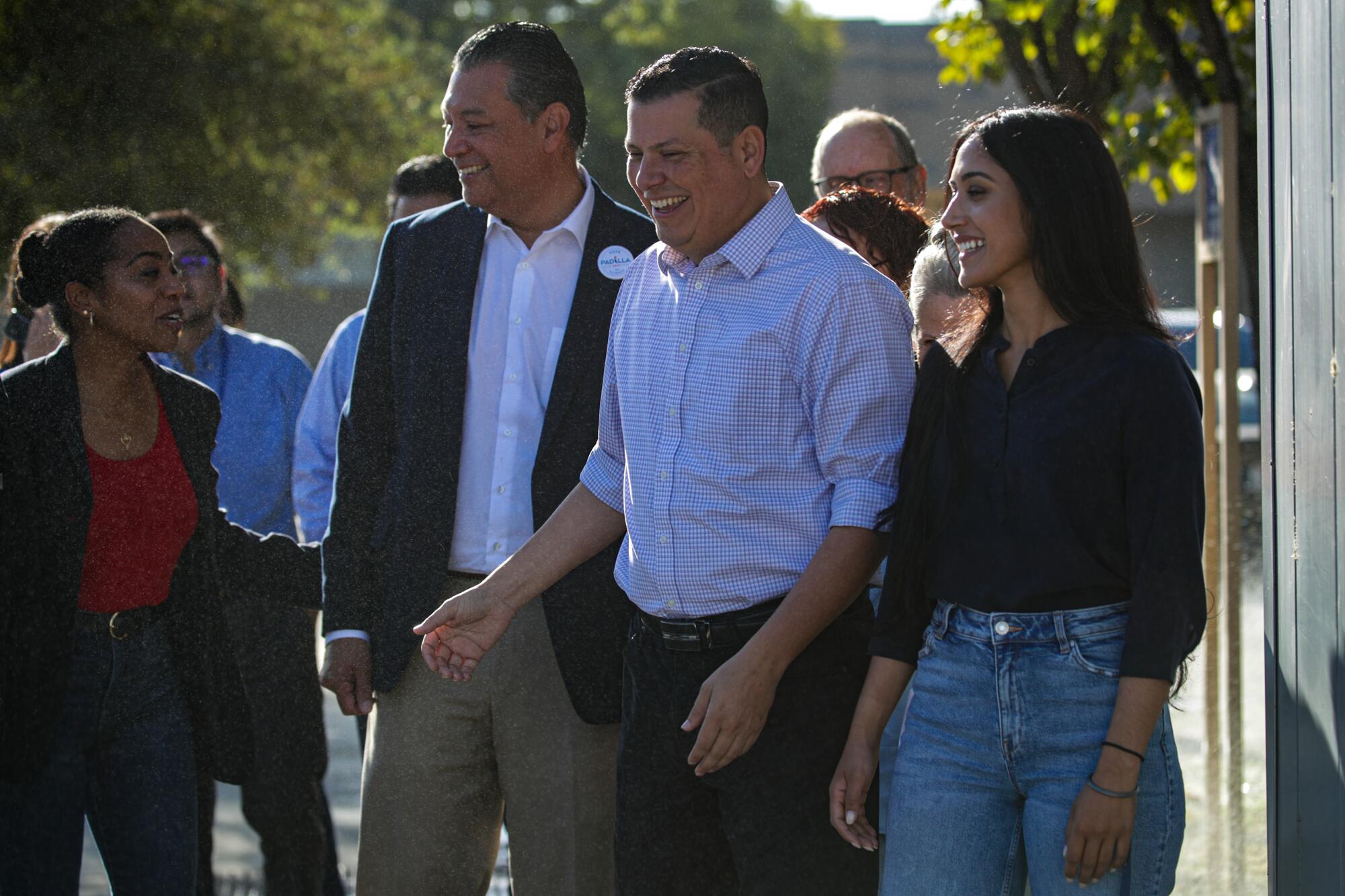
Salas’ grandfather emigrated in the 1940s from Matamoros, just across the border from Brownsville, Texas, via the Bracero program. And Salas helped his family in the fields up until high school. He went on to attend UCLA before becoming the first Latino on the Bakersfield City Council.
His background helps him bond with Latino constituents over shared cultural experiences, Salas said.
“People do bring it up, but I don’t think it’s the sole factor” for their support, Salas said. “People want somebody that’s going to hear them, see them, who feels like is a part of their community.”
Valadao, whose parents moved to the U.S. from the Azores islands of Portugal, said being the son of immigrants has helped him connect with Latinos.
“I was a young kid translating for them, sitting at the dinner table writing checks when they were paying bills or going into the lawyer’s or the accountant’s offices with them and translating,” he said.
The California congressional race between David Valadao and Rudy Salas is key to the balance of Republican or Democratic power in Congress.
Valadao has supported pro-immigrant measures in Congress, voting to grant residency to undocumented immigrants brought to the U.S. as minors, and to create a “certified agricultural worker status” and a path to citizenship for many farmworkers.
His said translating for his parents, which eventually included communicating with lawyers, environmentalists and regulators, gave him insight into how regulations affect businesses.
Both men are courting farmers and have focused on the valley’s water issues. Salas highlights his efforts getting funding for water infrastructure and storage projects. Valadao’s campaign touts his work for agriculture interest in Congress and the state Assembly before that.
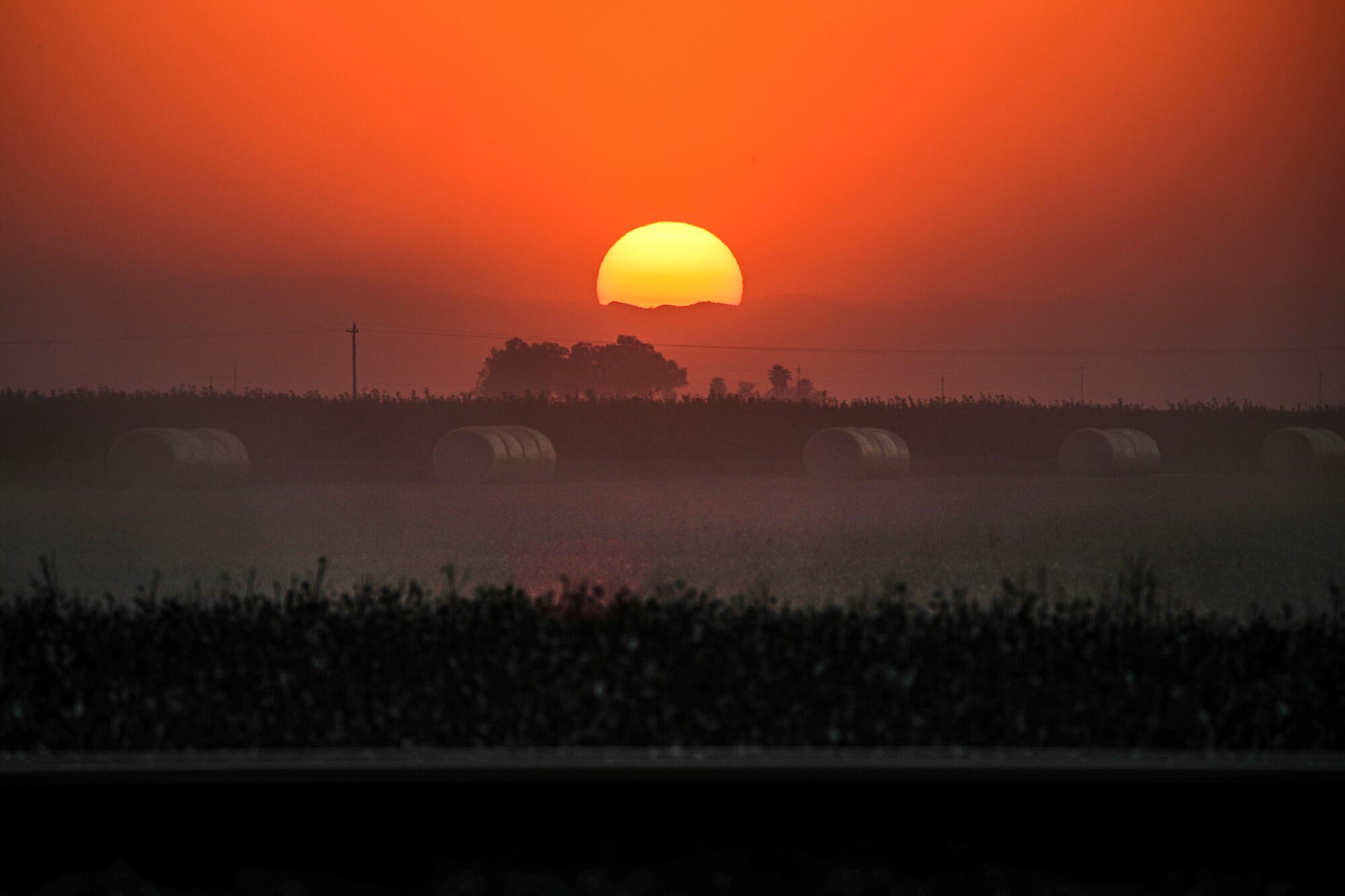
Pistachio farmer Madonna Lang of Laborde Land Co., who supports Valadao, said water issues have created financial strain on her family’s operation.
Jonathan Romero, 24, who used to work the Laborde fields and is now the company’s business manager, said when water is scarce, “not just the farmer is affected, but us employees as well.” If they can’t irrigate, “there’s no jobs. No water, no crop.”
Republican Alan Bittleston, 74, said he’ll probably vote for his fellow farmer because he is “on the right side of water issues.”
“I’m an environmentalist, but we’re wasting what little water we have, and it’s devastating for the farming community.”
Bittleston spoke over a barbecue lunch at a farm festival in Buttonwillow, where Valadao had handed out awards after a tractor parade. Wearing a white T-shirt with the phrase “Just farm it,” Valadao then made the rounds talking to voters.
Bittleston, who grows alfalfa, cotton, pistachio and wheat, noted he hadn’t always been happy with Valadao, particularly over the congressman’s vote to impeach President Trump for his role in the Jan. 6 Capitol insurrection. Bittleston doesn’t know that much about Salas, he said, but enough to know he probably won’t vote for him.
“I know he’s good for farming, but he’s too liberal on other things,” such as abortion, he said.
Armando and Juanita Salazar, both 40-year-old farmworkers, noticed Valadao at the festival. They said they’d seen both him and Salas, mostly on TV, in negative ads that leave them more confused than informed.
Armando Salazar said he’s disillusioned by politicians because he hasn’t seen enough change in the fields. Though he likes recent farmworker bills, they don’t always make a difference, he said. “A lot of laws aren’t enforced because people are afraid to report violations.”
Juanita Salazar said she just wants her representative to be honest and make a difference. She wants change — “que se mire” — that you can see.
But she’s not sure change will come. Juanita, who is eligible to vote, said she hasn’t decided whether she will.
Get our L.A. Times Politics newsletter
The latest news, analysis and insights from our politics team.
You may occasionally receive promotional content from the Los Angeles Times.
More to Read
Get the L.A. Times Politics newsletter
Deeply reported insights into legislation, politics and policy from Sacramento, Washington and beyond. In your inbox three times per week.
You may occasionally receive promotional content from the Los Angeles Times.
